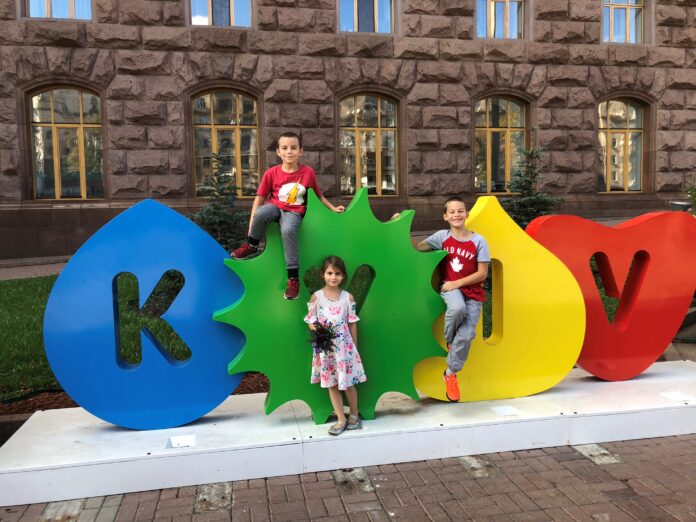For the Salomons family, the war in Ukraine hits close to home. They did missionary work for five years in the eastern European nation, and their youngest child lived there longer than she’s lived in Canada.
“She wakes up every morning and goes ‘Are our friends still alive?’” father Ryan Salomons said.
Although a bit older, the family’s 12- and 14-year-old sons have concerns too.
“Our 12-year-old, he has big questions. He wants to know why humanity is acting this way, what is the purpose of it?”
Registered psychologist Dr. Brent Macdonald said war is a challenging thing for adults — let alone children — to grapple with.
“What I really encourage parents to do is, first of all, check in with your kids. See what they do know and what their understanding of what’s happening is. Because there’s probably going to be a lot of misconceptions.”
Macdonald said kids need to feel safe. He suggested using a map to show where Russia, Ukraine and Canada are in relation to one another, to provide some perspective.
Having the language to understand what’s happening is important too, he said.
“It doesn’t mean we have to get into the gory details of everything, but we can give them the information that they want to see, that they want to hear, at their level,” Macdonald said.
Children are bound to hear about the war somehow, Macdonald pointed out — be it from friends, online, or at school.
Edmonton Public School Board chair Trisha Estabrooks said teachers are being sensitive.
“This is being talked about in our classrooms. It’s being talked about in a way that is respectful, certainly — and is keeping in mind that this could be trauma-inducing for some of our students.”
On Wednesday, students at schools in Edmonton and Calgary wore blue and yellow clothes, to show solidarity with Ukrainian families.
“That’s a small thing I think our division can do to show that, ‘listen, we care,’” Estabrooks said.
Alberta students mark ‘blue and yellow day’ in support of Ukraine
Pretending there isn’t a war is counterproductive, Macdonald said.
“Ignoring what’s happening around us is, I would argue in pretty much any situation, is not effective. Particularly for kids, as it becomes a habit.”
Tweet This
Click to share quote on Twitter: “Ignoring what’s happening around us is, I would argue in pretty much any situation, is not effective. Particularly for kids, as it becomes a habit.”
Macdonald recommends focusing on positives, like the humanitarian efforts and fundraising.
Read more:
How Albertans can help support Ukraine
Salomons said that’s something he’s doing with his children.
“There is good happening, even amongst the war. Ukrainians are coming together, they’re helping each other,” he said.
But even that doesn’t make the discussions easier.
“Talking with them, it’s been very difficult. We try to be realistic, but also try and help them understand what is going on,” Salomons said.
“I think the most important conversation we’ve had as a family is to separate the leaders of the world, that are making these decisions, with the people.
“We have Russian friends, we have Ukrainian friends and they, on both sides, are devastated by what’s happening there.”
Tweet This
Click to share quote on Twitter: “We have Russian friends, we have Ukrainian friends and they, on both sides, are devastated by what’s happening there.”
Pediatric consultant on talking to your kids about war
Related News
© 2022 Global News, a division of Corus Entertainment Inc.



